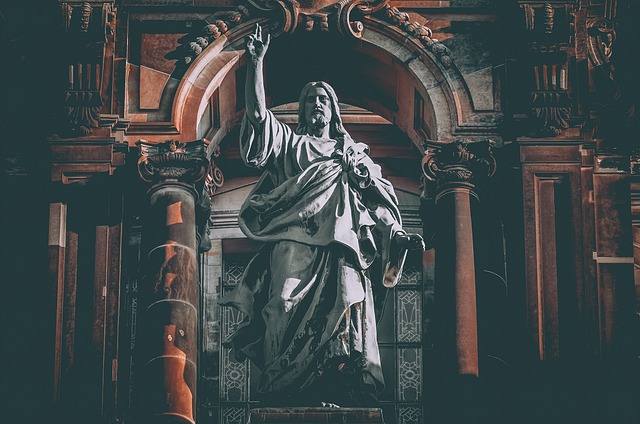
8 Tips to Help You Understand the History of Christianity
Christianity is one of the world’s major religions, with over 2.3 billion followers globally. Its history spans over two millennia, and it has had a profound impact on culture, politics, and society. Understanding the history of Christianity can shed light on many aspects of human civilization. In this blog post, you can explore eight tips that will help you gain a deeper understanding of this fascinating religion.
Tip #1: Start with the Birth of Jesus Christ
To understand Christianity, it’s crucial to begin with the birth of Jesus Christ. Christians believe Jesus to be the Son of God and the central figure of their faith. His teachings and life serve as the foundation of Christian beliefs. Delve into the New Testament of the Bible, particularly the Gospels of Matthew, Mark, Luke, and John, to learn about the life and teachings of Jesus. This will provide a solid starting point for comprehending the origins of Christianity.
Tip #2: Explore the Early Christian Church
After the crucifixion of Jesus, his followers began spreading his teachings. The establishment of the early Christian Church played a pivotal role in shaping the religion. You can learn about the apostles, particularly the Apostle Paul, who played a significant role in spreading Christianity beyond the Jewish community. It was during this time that Christian persecution by Roman authorities began, as Christians were seen as a threat to the Roman religious and social order.
Tip #3: The Council of Nicaea and the Nicene Creed
In the 4th century, Christianity underwent a significant transformation with the Council of Nicaea in 325 AD. This council aimed to address theological disputes within the church and establish a unified doctrine. The Nicene Creed, formulated during this council, laid the groundwork for many core Christian beliefs. It’s essential to understand the debates and decisions made during this period to comprehend the development of Christian theology.
Tip #4: The Great Schism
Christianity was united for centuries, but in 1054 AD, a split occurred between the Western (Roman Catholic) and Eastern (Eastern Orthodox) branches, known as the Great Schism. This division had profound religious and political consequences, with differences in theology, liturgy, and church governance leading to the separation. Learning about the Great Schism provides insight into the diverse traditions within Christianity, and it could provide you with a better understanding of where Christianity came from.
Tip #5: The Reformation and Protestantism
The 16th century brought about the Protestant Reformation, a movement led by figures like Martin Luther, John Calvin, and others. The reformers challenged certain practices of the Roman Catholic Church, leading to the birth of Protestant denominations. This period of religious upheaval also saw instances of Christian persecution, as reformers and their followers faced opposition from established religious authorities.
Tip #6: Christian Expansion and Globalization
Christianity has spread across the globe, impacting various cultures and societies. The age of exploration and colonization played a significant role in this global expansion, as missionaries sought to spread the faith to different parts of the world that beforehand followed various other types of religions. Understanding how Christianity adapted to different cultural contexts and contributed to global history is essential for a comprehensive view of its development.
Tip #7: Christianity in the Modern World
The 20th and 21st centuries have seen Christianity evolve in response to social, political, and technological changes never seen before. It has grappled with issues like secularization, ecumenism (efforts to promote unity among Christian denominations), and the rise of fundamentalism. Additionally, contemporary Christian persecution continues to be a concern in various parts of the world, highlighting the ongoing challenges faced by Christian communities.
Tip #8: Interfaith Dialogue and Contemporary Issues
To fully understand the history of Christianity, it’s crucial to engage in interfaith dialogue and the relationships between Christianity and other religions. This can provide valuable insights into how Christianity has interacted with and influenced other belief systems. Additionally, exploring contemporary issues such as the role of Christianity in addressing social justice, environmental concerns, and human rights is essential to understanding its relevance in today’s world.
Insights and Takeaways
Understanding the history of Christianity is a journey that spans centuries and continents. By starting with the birth of Jesus Christ and exploring key events, figures, and theological developments, you can gain a deeper appreciation for this influential religion. It’s also vital to acknowledge the challenges faced by Christians throughout history, including instances of Christian persecution. As Christianity continues to evolve in the modern world, it remains a significant force in shaping global culture and society.
